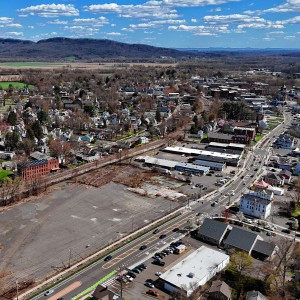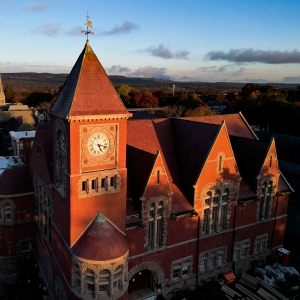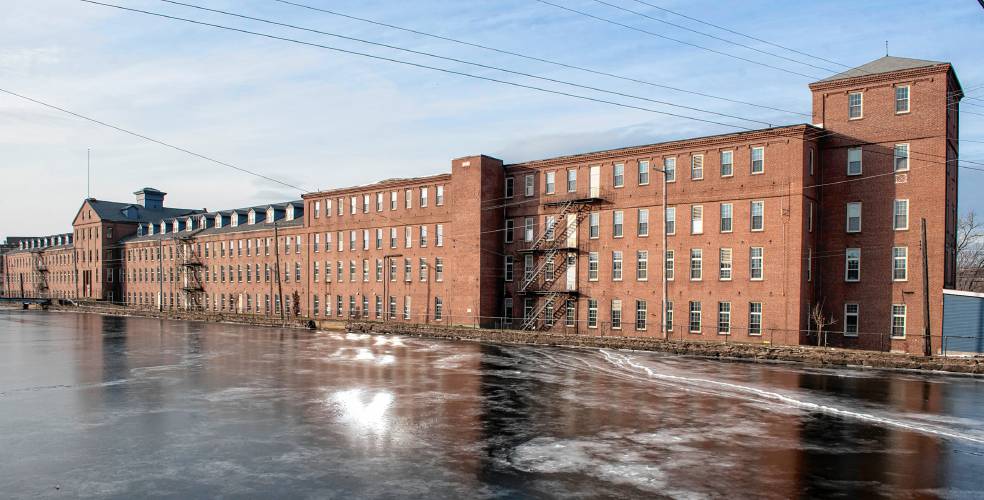Family of cannabis worker sues over 2022 death at Holyoke production plant
|
Published: 11-22-2023 10:49 AM
Modified: 11-22-2023 11:34 AM |
SPRINGFIELD — The family of a woman who died after suffering an asthma attack from working in a Holyoke cannabis production plant is suing the corporation that employed her, a health and safety manager and a contractor.
Lorna McMurrey, 27, died in January 2022 after collapsing for a second time while working at the Trulieve Cannabis Corp.’s processing facility, according to the lawsuit. It was the first reported occupational death in the U.S. cannabis industry, according to a recently released federal report.
“This company took my whole life away from me,” McMurrey’s mother, Laura Bruneau, stated in a release announcing the lawsuit from the Boston law offices of Meehan, Boyle, Black & Bogdanow. “You can’t have the big cannabis industry come into Massachusetts and not protect Lorna and other workers.”
McMurrey was employed as a technician in the “pre-roll” production room by Trulieve’s wholly owned subsidiary, Life Essence Inc. Part of her job was to feed cannabis into grinding machines, of which there were four in a “small production room,” according to the lawsuit.
“While in the production room, the cannabis dust and mold from the cannabis covered workers from head to toe,” the complaint states.
McMurrey first suffered an asthma attack on the job in November 2021 and had to be taken by ambulance to the hospital. Specifically, the lawsuit states that she was working in the production room “when the filter located below one of the grinding machines was removed and found to be extremely contaminated and filled with ground moldy cannabis product.” The release of this moldy dust brought on McMurrey’s asthma attack, the lawsuit alleges.
Trulieve took no steps to protect McMurrey following this incident, or to provide proper safety plans, or to provide information or training on working with hazardous materials, according to the complaint. McMurrey returned to work the next day.
Trulieve representatives did not respond to email and voicemail messages seeking comment Tuesday.
Article continues after...
Yesterday's Most Read Articles
 More than 130 arrested at pro-Palestinian protest at UMass
More than 130 arrested at pro-Palestinian protest at UMass
 Public gets a look at progress on Northampton Resilience Hub
Public gets a look at progress on Northampton Resilience Hub
 Northampton bans auto dealerships near downtown; zone change won’t affect Volvo operation on King Street
Northampton bans auto dealerships near downtown; zone change won’t affect Volvo operation on King Street
 UMass basketball: Bryant forward Daniel Rivera to be Minutemen’s first transfer of the offseason
UMass basketball: Bryant forward Daniel Rivera to be Minutemen’s first transfer of the offseason
 Town manager’s plan shorts Amherst Regional Schools’ budget
Town manager’s plan shorts Amherst Regional Schools’ budget
 Police respond to alcohol-fueled incidents in Amherst
Police respond to alcohol-fueled incidents in Amherst
The wrongful death suit, filed in Hampden Superior Court, accuses Trulieve of gross negligence and recklessness in failing to comply with proper safety plans or procedures.
It alleges the defendants “failed to create and/or implement policies, practices, and procedures to minimize the risks of exposure to airborne cannabis dust and mold inside the facility.”
It also alleges negligence in the design and installation of the HVAC system, “which failed to properly ventilate the Facility, and often leaked, causing mold to grow on the cannabis product.”
The contractors hired to design and install the HVAC system at the Holyoke plant and a Trulieve Northeast environmental health and safety manager are named in the lawsuit.
McMurrey died in hospital Jan. 7, 2022, three days after collapsing at work for a second time. Health investigators determined she died of occupational asthma due to exposure to ground cannabis, according to the complaint. A 2013 graduate of Westfield High School, she lived in West Springfield most of her life.
“We’re bringing the complaint to seek accountability on behalf of Lorna’s family,” lead attorney Jeremy Carroll said by phone Tuesday. “This is an incident that should never have happened.”
Carroll said the family is seeking a trial by jury and has not specified a figure for monetary compensation.
“We hope it will protect other workers in the industry,” he said.
The recently published federal report said McMurrey’s death “illustrates missed opportunities for prevention, including workplace exposures, medical surveillance, and treatment according to the current asthma guidelines.”
The report, published by the U.S. Centers for Disease Control and Prevention and based on an Occupational Safety and Health Administration inspection, also states that evaluation of workers with new-onset or worsening asthma is essential in cannabis facilities.
That approach could help prevent workplace deaths when paired “with prompt diagnosis and medical management,” the report states.
In an agreement announced at the end of last year, OSHA fined Trulieve $14,500 but concluded the company was not directly responsible for McMurrey’s death.
“Increased-scale manufacturing in our industry is a relatively new endeavor and we are determined to continually ask questions and seek answers to make our workplace the safest and healthiest it can possibly be,” Trulieve CEO Kim Rivers said in a statement in response to OSHA’s findings.
As part of the agreement, Trulieve was required to conduct a study to determine whether ground cannabis dust is to be classified as a hazardous chemical while in an occupational setting.
The status of that study, supposed to be completed by the end of May 2023, is unclear.
On Sept. 20, following its own investigation, the Massachusetts Cannabis Control Commission notified Trulieve that it intended to fine the company $502,500 for alleged safety and other violations, according to an editorial in the Boston Globe. Trulieve can appeal.
One of the nation’s largest cannabis companies with $1.2 billion in revenue in 2022, Florida-based Trulieve pulled out of Massachusetts earlier this year, closing dispensaries in Northampton, Framingham and Worcester along with its Holyoke production plant.
Rivers told shareholders the move stemmed from Trulieve’s focus on its “business strategy of going deep in our core markets and jettisoning non-contributive assets.”
The company now operates 190 retail dispensaries and over 4 million square feet of cultivation and processing capacity in the U.S., according to its last quarterly report.
Material from The Associated Press was used in this report.



 State Senate budget funds free community college for all
State Senate budget funds free community college for all ‘We can just be who we are’: Thousands show support for LGBTQ community at Hampshire Pride
‘We can just be who we are’: Thousands show support for LGBTQ community at Hampshire Pride Doors open at Tilton Library’s temporary home at South Deerfield Congregational Church
Doors open at Tilton Library’s temporary home at South Deerfield Congregational Church Area property deed transfers, May 2
Area property deed transfers, May 2
